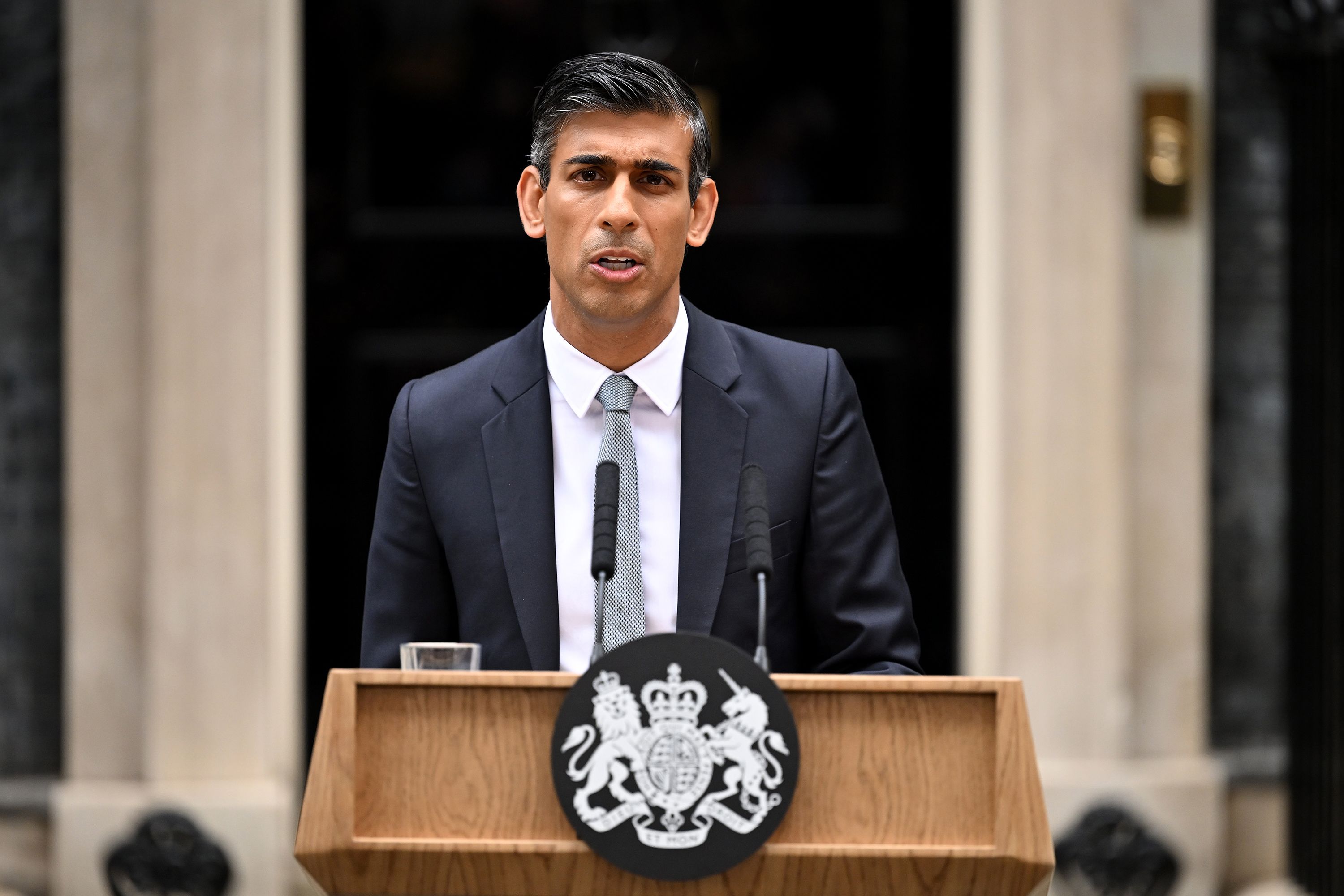Economic challenges before Rishi Sunak

With Indian-origin Rishi Sunak taking over the responsibility of the Prime Minister of the crisis ridden UK, the all of eyes are on how Rishi Sunak deals with this crisis? The British pound had hit an all-time low by 26 September 2022, at 1.076 per dollar, down by more than 27 percent in last few months. After that, though, it has improved by 6.5 percent in the last one month, England's foreign exchange reserves today are sufficient only for a few weeks' worth of imports. On the one hand, the pound continues to remain weak against the dollar, and it is becoming increasingly difficult for the Bank of England (the central bank) to stop pound from falling further due to the depleted foreign exchange reserves. In 1976, when a pound was equal to two US dollars, and it was weakening, England tried to stop it by taking a loan of $ 3.9 billion from the International Monetary Fund. But now that the pound is moving towards parity with USD, UK does not seem to have the ability to stop its further depreciation.
UK economy had recorded a decline of 0.3 percent in GDP till the month of August, while according to the estimates of the International Monetary Fund, GDP growth is expected to grow at a maximum of 0.3 percent in 2023. GDP growth was 0.7 percent in the first quarter of this year, which declined to 0.2 percent in the second quarter, 0.1 percent in July and further to negative 0.3 percent in August. Inflation in the British economy has reached 10.1 percent last month, and fuel prices have risen up to three times as oil and gas supplies are disrupted due to Ukraine war. Britons will be bound to face difficulties in the coming winters. It is understood that 30 percent of the people of England have lost their savings and the government debt has also reached 95 percent of GDP, which is a record. A Think Tank has warned that in the next 50 years this government debt can go up to 320 percent of GDP. As soon as he was elected as the Prime Minister, Rishi Sunak said that his first priority would be to solve the economic crisis. Regarding the decisions taken by former Prime Minister Liz Truss, he said that mistakes have been made in the past, though, intentions cannot be doubted. He said that he has been chosen to solve these problems. He also said that he will run the government with integrity, professionalism and accountability. It is worth noting that former Prime Minister Liz Truss had taken some decisions to reduce the tax rates and increase government expenditure, supposedly to providing relief to the common people, due to which the government was all set to make further borrowing. This caused significant dent to the credit worthiness of the government. As of September 26, 2022, the yield on the 30-year bonds had risen to 4.95 per cent. However, in the last one month, it has come down to 3.75 percent.
Liz Truss presented a plan to give huge concessions in government taxes to give relief to the people from inflation in her budget. She said that this will give impetus to economic development and people will get relief from inflation. It was a tax cut of 45 billion pounds. In such a situation, the market forces did not approve the move, which led to turbulences in the market and recession. Rishi Sunak warned Liz Truss, even then, to curb spending and avoid tax cuts. Rishi Sunak says that it is not right to take the borrowing route to get out of inflation. Conservative Party MPs, who had earlier decided to hand over power to Liz Truss than to Rishi Sunak, the same MPs have now handed over the rein of power to Rishi Sunak. Not only the government debt, the recovery of the economy has also become difficult due to rising interest rates. On the other hand, the general public is already struggling with the declining purchasing power due to rising prices. Rising fuel and food prices have already spoiled the budget of the middle class. In such a situation, the recovery by mortgage companies is also endangered. This can also affect the health of banks and financial institutions.
Significantly, Sunak, a strong opponent of the policy of reducing taxes, increasing expenditure and borrowing, believes that it is not in accordance with 'conservative' principles and it is actually socialism. Sunak plans to reduce the basic tax from the current 20 paise per pound to 16 paise per pound (20 per cent reduction), reduce Income tax by 1 percent upto 2024, domestic fuel bill be cut and corporate tax be increased by 2023. Sunak's plan looks better than Liz Truss's policies in terms of market acceptability. It remains to be seen how he turn his plans into reality. But there is no doubt that the time ahead for Sunak is not smooth. On the one hand, he has to handle the British economy and on the other hand he has to maintain public support for his 'Conservative Party' in view of the rising popularity of the 'Labor Party'. Future will tell, that how he handles the economic and political fronts simultaneously.
